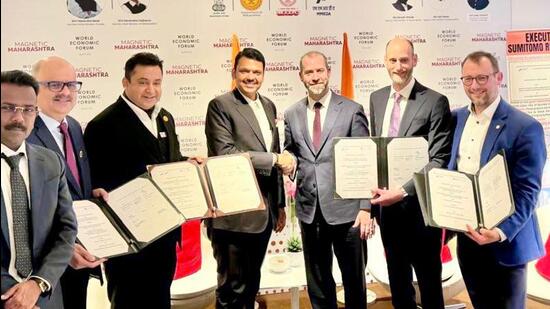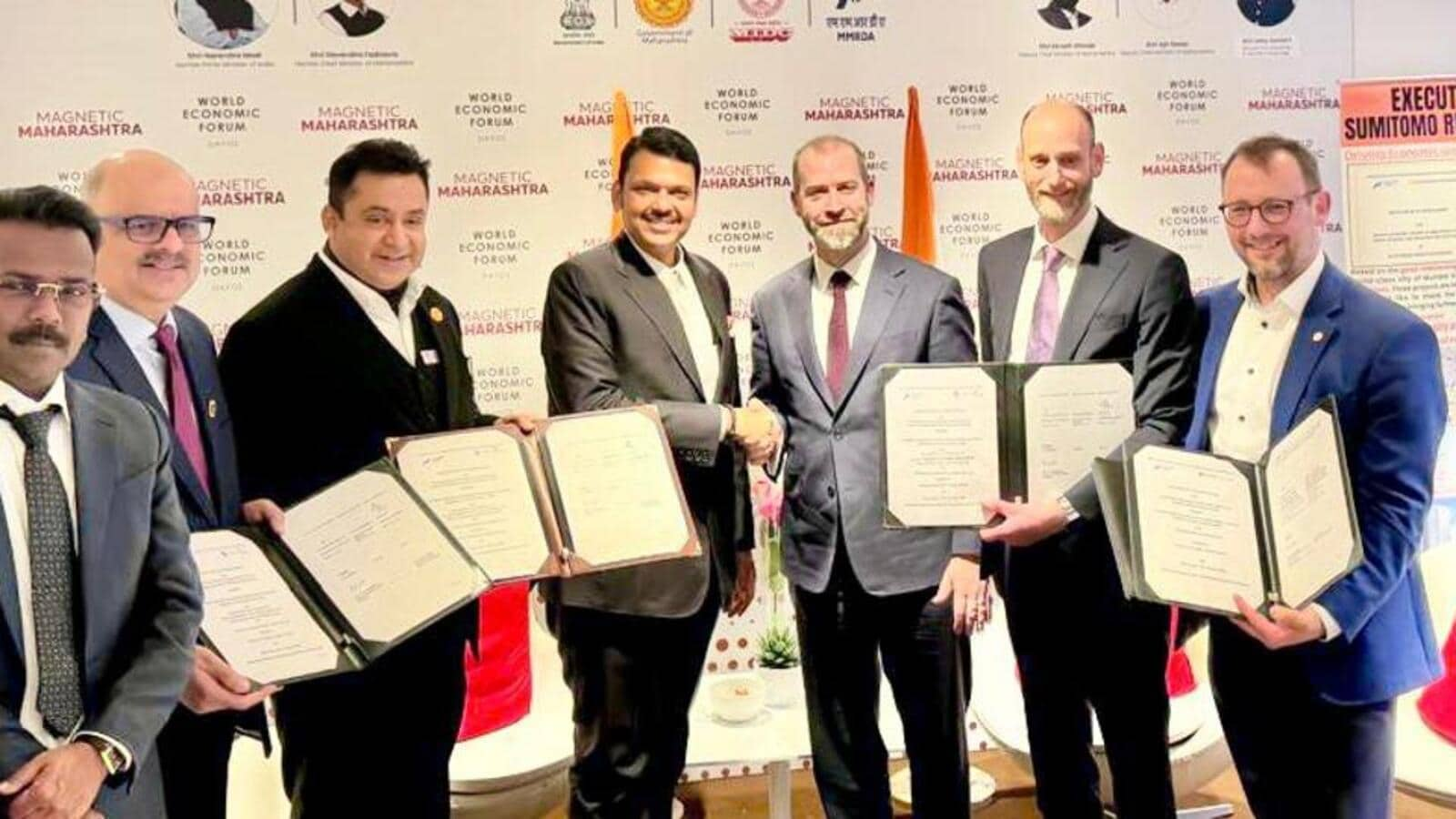Mumbai: The state government has tied up with agencies that operate the London tube to maximise revenue generation from metro rail corridors in Mumbai. The Mumbai Metropolitan Region Development Authority (MMRDA), which operates the metro network in the city, has signed a memorandum of understanding (MoU) to this effect with the Department for Transport (DfT) of the United Kingdom government, and Crossrail International (CI), its wholly owned subsidiary which provides strategic advice to organisations developing and delivering complex rail schemes, sources told Hindustan Times.
 Devendra Fadnavis with officials from Department for Transport (DfT) and Crossrail International
Devendra Fadnavis with officials from Department for Transport (DfT) and Crossrail International
“We are looking at larger means and ways to generate revenue and make these metro lines sustainable,” an MMRDA official told HT.
Currently, only 59 km out of the 337-km metro rail network in Mumbai is operational and the daily average ridership on Metro 2A and 7 is 250,000 passengers while on Metro 1, it is 500,000 passengers. Apart from income from ticket sales, MMRDA is working on a plan that will bring in revenue worth around ₹150 crore from activities such as branding rights, hoardings, advertisements, and leasing of spaces.
The MoU with UK agencies will enable MMRDA to further increase revenue generation from metro rail corridors, the official clarified. While the government levies a 1% metro cess on all property registrations in Mumbai, MMRDA will explore funding models like land value capture (LVC) and transit-oriented development (TOD), which allow government agencies to collect more revenue from developers factoring in the enhanced price of land owing to the creation of public infrastructure, the official explained.
As part of the MoU, MMRDA will leverage the expertise of UK institutions like Transport for London (TfL), Network Rail, and UK Export Finance for executing, operating and maintaining the 14 metro lines in Mumbai. The terms of reference include integrated infrastructure development for seamless first- and last-mile connectivity and development of a unified interface for all modes of transport, along the lines of TfL’s website and app which allows commuters to book tickets for trains, metros, buses and taxis, and provides details regarding schedules, air quality, directions and fares.
A similar approach could be taken in Mumbai, integrating the suburban rail and metro rail network under a single interface, said sources. Government authorities are already working on a common app for metro, suburban trains, aggregator taxis and BEST buses.
